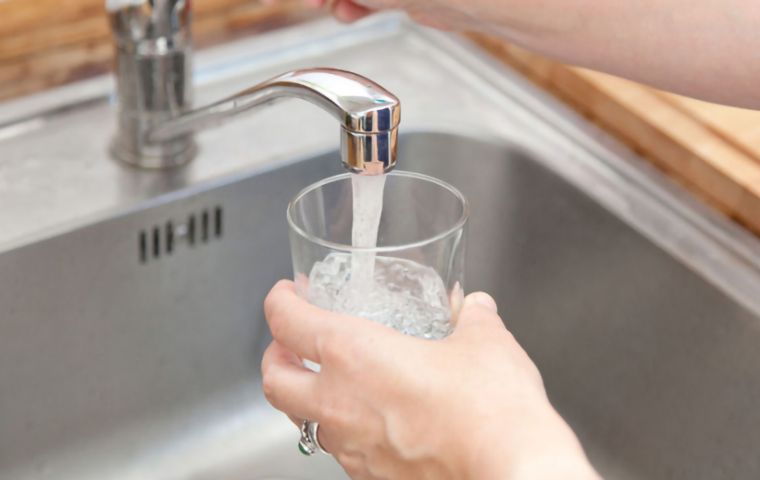MercoPress. South Atlantic News Agency
Uruguayan Gov't speaks of “inaccuracies” in UN report about water
 UN experts highlighted the human right to water
UN experts highlighted the human right to water Uruguay's Foreign Ministry Thursday issued a communiqué in response to a UN report on the water crisis the South American country is going through. The government “acted in a preventive manner, the water is still drinkable and guaranteed to the most vulnerable sectors [is] the purchase of double the daily average of water consumed per person in our country,” the statement read.
Earlier this week, United Nations experts from the working group on business and human rights issued a statement from Geneva urging Uruguay to prioritize the use of water for human consumption, while expressing their concern for people who cannot afford to buy water and those with disabilities or reduced mobility who cannot carry it, which “creates a risk of de facto privatization of water for human consumption, forcing the population to buy water.”
The Uruguayan government replied that the experts' report contained “inaccuracies.”
“To date, the values established in the exceptionality are not considered alarming,” Uruguay's Foreign Ministry argued while adding that ”to support people in vulnerable situations, the beneficiaries of the Ministry of Social Development (Mides) receive economic support for the purchase of 60 liters of water per month, equivalent to one out of every three inhabitants“ of the Montevideo metropolitan area.
The Uruguayan authorities also detailed the strategies they are carrying out to ”prevent the failure of the water infrastructure and preserve public health“. Among the points mentioned is the fact of guaranteeing the continuity of the service without making supply cuts and avoiding biological contamination.
They also emphasize that sanitation is maintained for the 550,000 homes in the metropolitan region so that they can evacuate domestic wastewater in order to avoid a ”scenario of enormous sanitary danger and the spread of diseases.“
The South American officials also underlined that ”the distribution networks were kept in continuous operation to combat and protect against fires and urban disasters.“
The UN experts had spoken of ”overexploitation of water, especially by some industries in the country“ and stated that the Executive Branch ”has recommended reducing water consumption in households“ when ”these restrictions do not apply to large-scale consumers.“
The experts urged Uruguay to ”prioritize the use of freshwater for human consumption“. The letter is signed by six specialists, among them, the Special Rapporteur on the Human Right to Safe Drinking Water and Sanitation, Pedro Arrojo-Agudo, and the president of the Working Group on Business and Human Rights, Damilola Olawuyi.
”The continuous decline in water quality due to increased levels of salinity in its composition is alarming. This situation significantly affects vulnerable groups, such as children and adolescents, pregnant women, and people suffering from chronic diseases,“ the report read.
The experts also warned that ”although the high salt indices are attributed to the failure of water infrastructure, aggravated by abnormally long periods of water stress, the underlying problem is the overexploitation of water, especially by some industries in the country.“
”We recognize the government's efforts to reduce taxes on [bottled] water. However, it is necessary to deepen the measures to guarantee that all people can access the water necessary for life,“ they added.
The report also highlights that the human right to water implies that water must be ”physically accessible, free of pollutants and managed in a sustainable manner, respecting human dignity, equality, and non-discrimination.“
”Businesses, including state-owned enterprises, have a responsibility to respect human rights at all times, and states have an obligation to ensure the protection of this right by guaranteeing universal access to safe drinking water, including during emergencies,” it added.




Top Comments
Disclaimer & comment rulesCommenting for this story is now closed.
If you have a Facebook account, become a fan and comment on our Facebook Page!